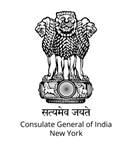
Statement by India on under General Debate under Agenda Item 3 in the
41stSession of the Human Rights Council ( 24 June – 12 July 2019),
delivered by Mr. Vimarsh Aryan, First Secretary,
Permanent Mission of India, (Geneva, 01st July 2019)
Mr. President,
I have the honour to make this statement on behalf of Group of countries of the Like-minded Group (LMG).
Mr. President,
The discussions on the human rights agenda and work of the Human Rights Council and its associated procedures and mandates are getting more contentious and difficult. The reasons could be attributed to very divergent priorities and concerns of member states in terms of their levels of economic development, social and cultural contexts.
The promotion and protection of human rights, however, could be best pursued through the principles of cooperation and genuine dialogue as recognized by resolution 60/251. For doing so, it is essential to continue enhancing international efforts to broaden understanding among civilizations, cultures and religions. It may be worth noting that VDPA factored in the significance of national and regional particularities and various historical, cultural and religious backgrounds while States pursue promotion and protection of all human rights and fundamental freedoms.
Taking these factors into account, it is vital to provide geographical, professional, legal and cultural diversity to all the HRC bodies and mechanisms including the OHCHR which is crucial in comprehending diverse countries. This would help in building constructive and practical partnerships between the UN human rights system and member states.
Mr. President,
The current geographical composition in all HRC bodies and mechanisms is far from reaching the desirable levels. The imbalance is widely prevalent in the composition of the Special Procedures Mandate Holders, the staff of the OHCHR and members of the committees of various treaty bodies. The report submitted by the OHCHR on the composition of the staff of the Office of the United Nations High Commissioner for Human Rights in September 2018 showed the stark asymmetric representation.
While acknowledging the commitment of the High Commissioner towards increasing the diversity of the OHCHR staff, renewed effort is encouraged in this regard utilizing the restored authority of the High Commissioner to achieve the broadest possible geographical diversity. This will enrich the expertise of the OHCHR that would in turn be contributive to more cooperation from member states.
Thank you, Mr. President.
*****
*The LMG countries supporting this statement are: 1. Algeria, 2. Bangladesh, 3. Belarus, 4. Bolivia, 5. China, 6. DPRK, 7. Egypt, 8. Laos, 9. Malaysia, 10. Myanmar, 11. Philippines, 12. South Africa, 13. Syria, 14. Turkmenistan, 15. Venezuela, 16. Zimbabwe, 17. India.












